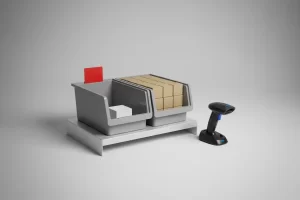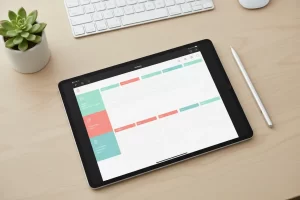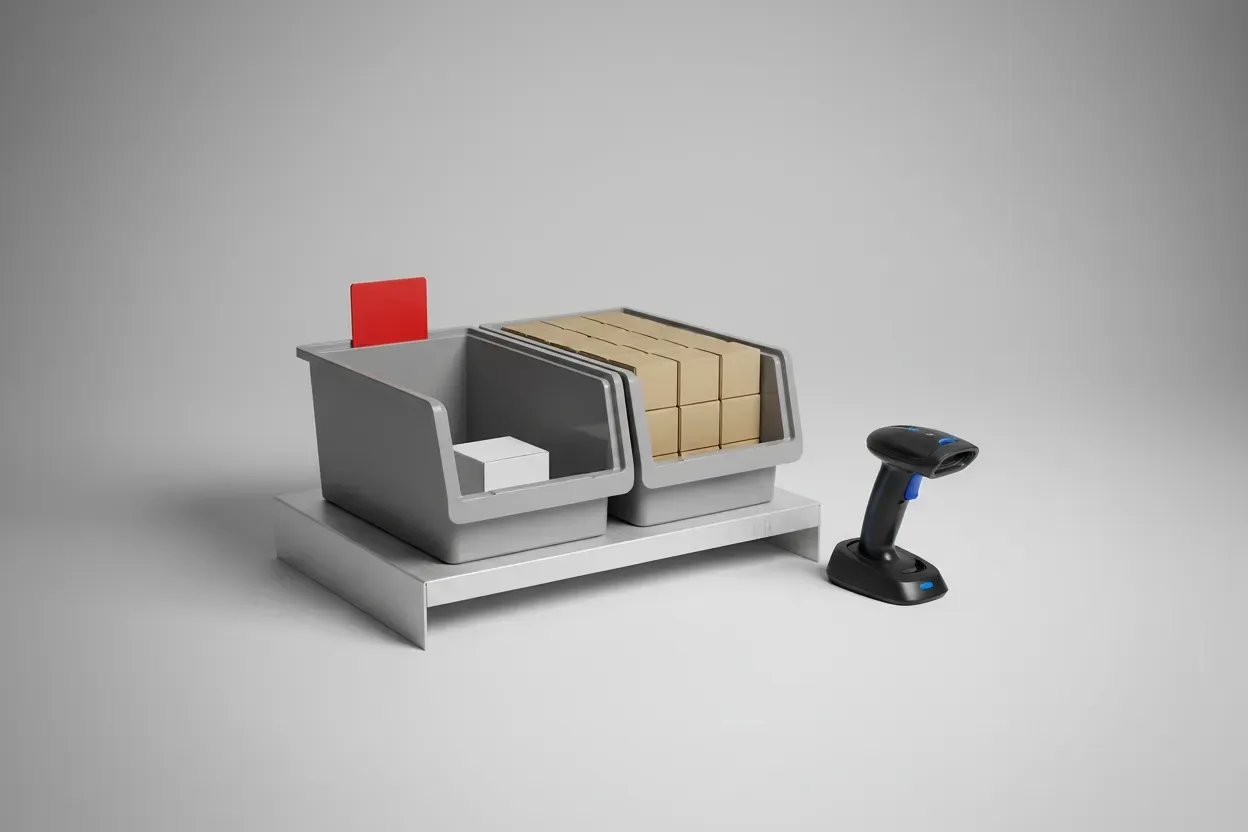What’s Your Key to Prudent Budgeting for Business Success?
In the quest for fiscal prudence, we’ve gathered the collective wisdom of ten founders, CEOs, and other executives to share a single budgeting tip that has been instrumental in their financial decision-making. From the strategic implementation of a quarterly PPP analysis to the disciplined application of the zero-based budget method, dive into the diverse range of insights that have steered these leaders towards more informed and effective budget management.
- Implement a Quarterly PPP Analysis
- Embrace Realism in Budgeting
- Set Aside a Margin of Safety
- Utilize Budgeting Tools and Apps
- Adopt a Tactical Budget Approach
- Conduct a Market and Industry Analysis
- Establish a Robust Emergency Fund
- Monitor Cash Flow Closely
- Plan for Overestimated Expenses
- Apply the Zero-Based Budget Method
Implement a Quarterly PPP Analysis
One invaluable budgeting process that has helped me make smarter spending trade-offs is implementing “PPP days” quarterly—analyzing every proposed payment through three lenses: Purpose, Priority, and Positioning, before approval.
In startups, shiny new solutions that promise immense value crop up daily, and it’s tempting to sign up for every tool touting productivity gains. However, I’d often regret choices once the credit card bill or annual renewals appeared. Over time, these arbitrary purchases bled the margins I needed to thrive.
Instituting disciplined PPP Analysis before greenlighting any expense finally brought thoughtful strategy into my buying behaviors. Now, I force myself to explain how any new software subscription actively pushes core business priorities forward, aligns with overall positioning, and fills gaps hindering growth specifically.
 Brian Meiggs
Brian Meiggs
Founder, My Millennial Guide
Embrace Realism in Budgeting
As a small-business owner, I know good financial management is pragmatic. I’ve seen too many competitors go big only to go bust. The old adage “Aim for the moon, and you’ll land among the stars” isn’t always accurate. It’s not aspirational or sexy, but there is something to be said for realism in budgeting. Overextending yourself is stressful, and returns are never guaranteed.
I advise other entrepreneurs to take those well-published success stories with a grain of salt. For every Microsoft, there is a company that went broke before ever leaving the garage.
Slow, steady, and sustainable growth can be just as satisfying, and it’s more likely to stick.
 Linn Atiyeh
Linn Atiyeh
CEO, Bemana
Set Aside a Margin of Safety
Like personal finances, you must have a margin of safety in your business budget. Since you cannot plan for everything, set a consistent dollar amount or percentage of profits from the previous month aside, just in case something unexpected occurs. This isn’t just for the unexpected, which can hurt a business, but also unforeseen opportunities to grow sales or strengthen awareness.
 Jason Vaught
Jason Vaught
President, 805 SEO
Utilize Budgeting Tools and Apps
As a Certified Financial Planner (CFP), my advice is to utilize budgeting tools and apps. They simplify and streamline the budgeting process.
Today’s technology offers a variety of tools that make budgeting easier than ever before. Applications like Mint, YNAB (You Need A Budget), and PocketGuard automate the budgeting process. They provide clear visual representations of your income, expenses, and savings progress. These tools are also useful for setting and tracking financial goals, monitoring spending by category, and even providing tips for enhancing your financial well-being.
 Eric Croak, Cfp
Eric Croak, Cfp
President, Croak Capital
Adopt a Tactical Budget Approach
What has proven to be the best budgeting trick that I have used for years in my business, towards making righteous financial decisions, is the tactical budget. This approach is based on writing a prospective budget that matches the long-term directions and objectives of the company. It is distinct from the standard budgeting process in that it concentrates on long-term planning and forecastability.
This technique allows for determining prospective costs and revenue generators, eliminating wasted resources, and improving the quality of decision-making. My strategic approach to budgeting has helped me achieve efficient usage of resources and foster better interdepartmental working teams and resource flexibility.
This method has been priceless in steering the firm’s growth and stability, especially with the technicality of the legal sector, which is both dynamic and erratic.
 Lyle Solomon
Lyle Solomon
Principal Attorney, Oak View Law Group
Conduct a Market and Industry Analysis
One important budgeting strategy is conducting comprehensive market and industry analysis. By delving into market trends, consumer behaviors, and meticulously examining the financial performance of our competitors, we gain valuable insights. This approach not only allows us to gauge our position in the market but also enables us to make well-informed financial decisions that align with the ever-evolving business landscape.
 Tobias Liebsch
Tobias Liebsch
Co-Founder, Fintalent.io
Establish a Robust Emergency Fund
One crucial piece of financial advice for entrepreneurs is establishing and maintaining a robust emergency fund. A financial cushion equivalent to at least six months’ worth of business and personal expenses provides a safety net during unexpected challenges or economic downturns.
These funds ensure you can continue operating your business and covering personal expenses even when faced with setbacks like reduced revenue, unexpected expenses, market changes, or economic uncertainties. It offers peace of mind and financial stability, allowing you to make more informed, less pressured decisions and confidently navigate the unpredictable nature of entrepreneurship.
 Michael Green
Michael Green
Co-Founder, Winona
Monitor Cash Flow Closely
Picture cash flow as the heartbeat of your business. It’s all about knowing where your money goes and comes from. It’s like having a wallet check for your business. When you watch cash flow, you ensure there’s enough financial fuel to handle whatever comes your way.
Whether it’s paying bills, meeting obligations, or jumping on a great opportunity, staying tuned to cash flow means you can make quick adjustments to keep everything running smoothly. It’s like having a financial radar; you can spot any challenges ahead and navigate through them without a hitch.
So, in simple terms, keeping tabs on cash flow ensures that your business is not just surviving but thriving, ready to tackle any financial twists and turns that come its way.
 Chris Hunter
Chris Hunter
Director of Customer Relations, ServiceTitan
Plan for Overestimated Expenses
One budgeting tip that I’ve found effective in my business is the practice of overestimating expenses. This involves planning the budget by allocating slightly more funds than I expect to need for each expense category. This creates a buffer that can absorb unexpected costs or price increases.
This practice helps in managing cash flow more efficiently and preparing for unexpected expenses. If the overestimated funds are not used, they can be redirected toward other priorities. It’s a straightforward strategy that provides a safety net and makes financial planning less stressful and more flexible.
 Eliezer Zupnick
Eliezer Zupnick
Founder, Zupnick Associates Insurance
Apply the Zero-Based Budget Method
One essential budgeting tip that has significantly assisted me in making educated financial decisions in my business is the “Zero-Based Budget” method. This approach involves making an income-minus-outgo equals zero equation at the start of each month.
In other words, every dollar has a designated purpose, whether it be for operating expenses, investments, or savings. By using this method, wasteful spending is minimized, and financial management is optimized, making it a powerful tool for business financial planning.
 Adam Fayed
Adam Fayed
CEO, AdamFayed.com
Submit Your Answer
Would you like to submit an alternate answer to the question, “What’s one budgeting tip that has helped you make informed financial decisions in your business?”







































